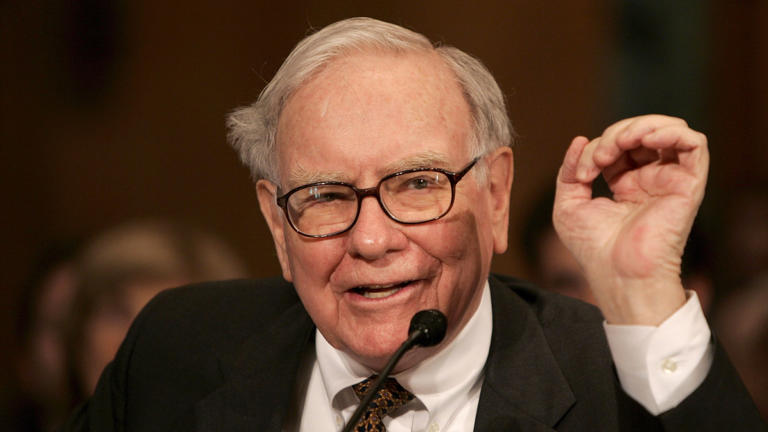Warren Buffett, the legendary investor, is not only renowned for his unparalleled financial acumen but also for his remarkably frugal lifestyle, which serves as a beacon of wisdom for individuals across all income brackets. With his prudent approach to money management, Buffett has imparted invaluable lessons that could help the poor and middle class navigate the financial landscape more effectively in 2024. Let’s delve deeper into each of the 11 insights gleaned from Buffett’s life and philosophy:
- Your Home: Buffett’s emphasis on distinguishing between the cost of living and the standard of living underscores the importance of prioritizing functionality and personal satisfaction over extravagant living arrangements. By following Buffett’s example of contentment with a modest home, individuals can focus on creating a living space that meets their needs without succumbing to societal pressures for excessive consumption.
- New Cars: Buffett’s preference for driving older vehicles not only saves money but also underscores the value of time. By avoiding unnecessary expenses associated with purchasing new cars, individuals can allocate their resources toward endeavors that contribute to long-term financial stability, echoing Buffett’s prudent allocation of resources.
- Car and Home Maintenance: Buffett’s advocacy for mastering basic DIY skills empowers individuals to save money and extend the lifespan of their assets. By learning how to handle minor repairs independently, individuals can minimize expenses associated with professional services and gain a sense of self-reliance in maintaining their homes and vehicles.
- Dining Out: Buffett’s caution against excessive spending on dining out highlights the financial impact of frequent restaurant meals. By opting for home-cooked meals and hosting gatherings at home, individuals can enjoy social interactions while managing their budgets effectively, aligning with Buffett’s emphasis on practicality and financial discipline.
- Credit Card Expenditures: Buffett’s preference for cash transactions reflects his aversion to high-interest credit card debt and underscores the importance of financial discipline. By avoiding credit card balances and the associated interest payments, individuals can mitigate financial strain and maintain control over their spending habits, aligning with Buffett’s prudent financial principles.
- Gambling: Buffett’s prudent approach to investing extends to his views on gambling, emphasizing the importance of informed decision-making and risk management. By avoiding speculative activities and making thoughtful investment choices, individuals can safeguard their financial well-being and pursue sustainable wealth accumulation strategies, in line with Buffett’s conservative investment philosophy.
- Risky Investments: Buffett’s advice against investing in businesses or assets that individuals do not fully comprehend highlights the importance of thorough research and understanding in investment decisions. By adopting a cautious approach to investing and prioritizing assets with proven track records and transparent fundamentals, individuals can mitigate risk and pursue long-term financial growth, mirroring Buffett’s prudent investment strategy.
- The Latest Gadgets: Buffett’s reluctance to upgrade his devices until necessary underscores the importance of evaluating the utility and longevity of technological purchases. By resisting the urge to chase trends and prioritizing investments that offer long-term value, individuals can make prudent purchasing decisions that align with their financial goals and priorities, echoing Buffett’s emphasis on value over novelty.
- Low-Quality Products: Buffett’s emphasis on value over price highlights the importance of quality in purchasing decisions. By investing in high-quality merchandise that offers durability and longevity, individuals can maximize the value of their purchases and avoid the pitfalls of prioritizing short-term savings over long-term satisfaction, echoing Buffett’s focus on value-driven consumption habits.
- Wasteful Purchases: Buffett’s caution against unnecessary expenditures on items that do not align with individuals’ essential needs underscores the importance of prudent financial management. By prioritizing purchases that contribute to their long-term well-being and financial goals, individuals can avoid the trap of mindless consumption and cultivate a more intentional approach to spending, in line with Buffett’s emphasis on value-based decision-making.
- Unused Subscriptions: Buffett’s awareness of unused subscriptions as a common financial pitfall highlights the importance of regularly reassessing recurring expenses. By identifying and eliminating underutilized services, individuals can streamline their expenses and allocate resources more effectively toward endeavors that align with their priorities and financial objectives, reflecting Buffett’s commitment to maximizing utility and minimizing waste.
In essence, Warren Buffett’s life and philosophy offer a wealth of wisdom for individuals seeking to achieve financial success and stability. By embracing principles of frugality, discipline, and informed decision-making, individuals can navigate the complexities of personal finance with confidence and lay the foundation for a more prosperous future in 2024 and beyond.
